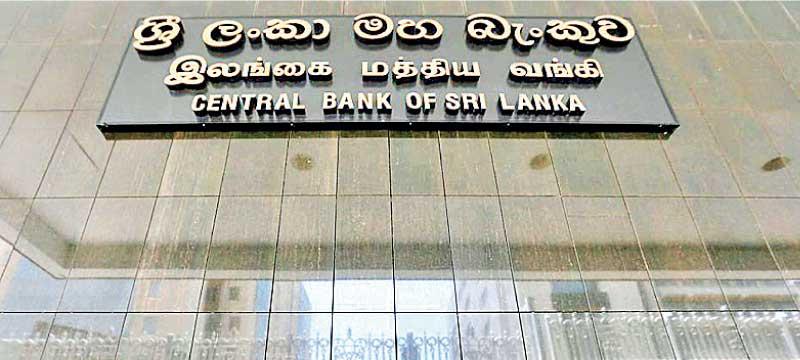31 May 2023 - {{hitsCtrl.values.hits}}

Analysts are placing equal bets between the Central Bank maintaining the current policy rates and cutting rates at the monetary policy review announcement scheduled for tomorrow.
“We believe that there is a 50-50 chance that the CBSL may maintain or relax rates from the current levels at the upcoming policy review meeting allowing a soft landing from its hawkish to dovish stance,” First Capital Research said in their pre-policy rate analysis.
“However, considering both arguments for and against monetary easing, we have assigned a 50 percent probability for policy rates to be maintained at the current rates whilst 50 percent is allocated for a relaxation of policy rates,” they added.
Sri Lanka’s monetary policy remains ultra-tight since April last year when the Monetary Board delivered a bumper 700 basis point hike in key rates followed by another 200 basis point hike in two instances that followed to stem any remaining price pressures, which reached hyperinflationary levels last year.
Inflation appears to be easing fast, predominantly due to the higher base effects last year. Prices still remain sharply elevated although they have eased somewhat from the peak they had been a few months ago.
Central Banks around the world are using policy rates to tame the prices which reached stubbornly high levels in the aftermath of the pandemic and more so with Russia’s invasion of Ukraine last year.
In a study released last week, former Fed Chair Ben Bernanke and former IMF Chief Economist Oliver Blanchard cited two reasons for the highest inflation in four decades in the US. They were pandemic related supply disruptions which were then worsened by the government stimulus and the ultra-low interest rates.
In Sri Lanka, the inflationary forces first appeared with these global conditions from around the second quarter of 2021, which was then exacerbated by the dollar shortage and the resulting floating of the currency in 2022 March.
While the Central Bank is under pressure from the IMF to keep the rates at elevated levels to keep inflation under check, a relaxation in the monetary policy is widely expected starting from as early as the third quarter in lockstep with the current disinflation path.
Sri Lanka’s consumer prices measured by the mostly-watched Colombo consumer price index eased to 35.3 percent in the twelve months to April from 50.3 percent through March.
FCR in its analysis pointed out the need to stimulate the economy, strengthen the currency and the external reserves, reverse private credit contraction and the reduced risk premium attached to the government securities as the key reasons the Monetary Board could consider for cutting rates.
“Thereby, with economic indicators stabilising and economy projected to recover during 2H 2023 with a drastic slowdown of inflation from 2Q2023 onwards, we believe a sizeable monetary relaxation may be required in the latter part of 2Q2023 with a view to stimulate economic growth and accelerate the decline in interest rates,” they added.
Conversely, the counterforce for a relaxation in policy comes from the need to facilitate faster easing on consumer prices, uncertainty surrounding domestic debt optimising and the still negative overnight liquidity.
01 Nov 2024 44 minute ago
01 Nov 2024 1 hours ago
01 Nov 2024 2 hours ago
01 Nov 2024 2 hours ago
01 Nov 2024 2 hours ago